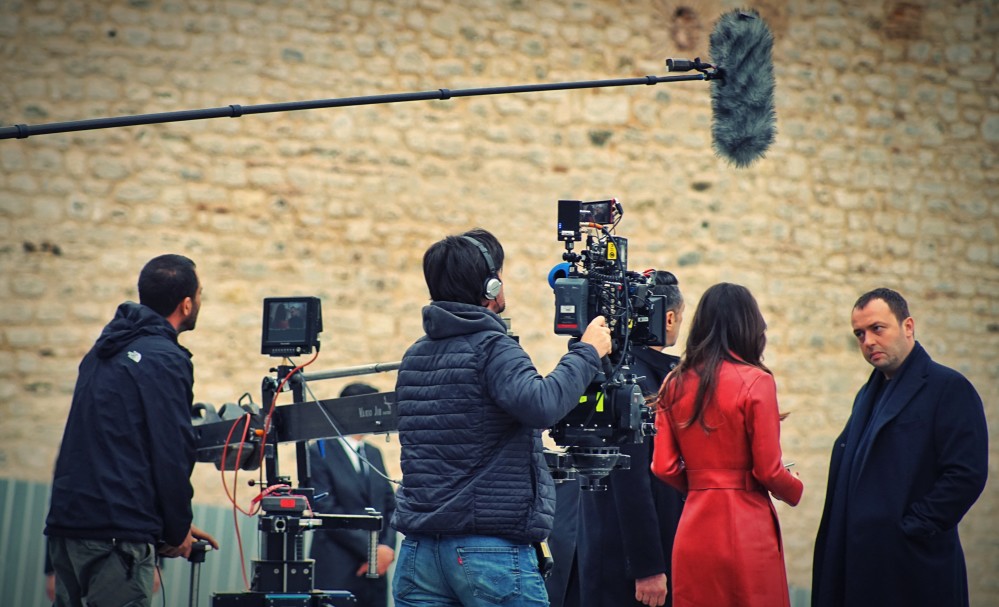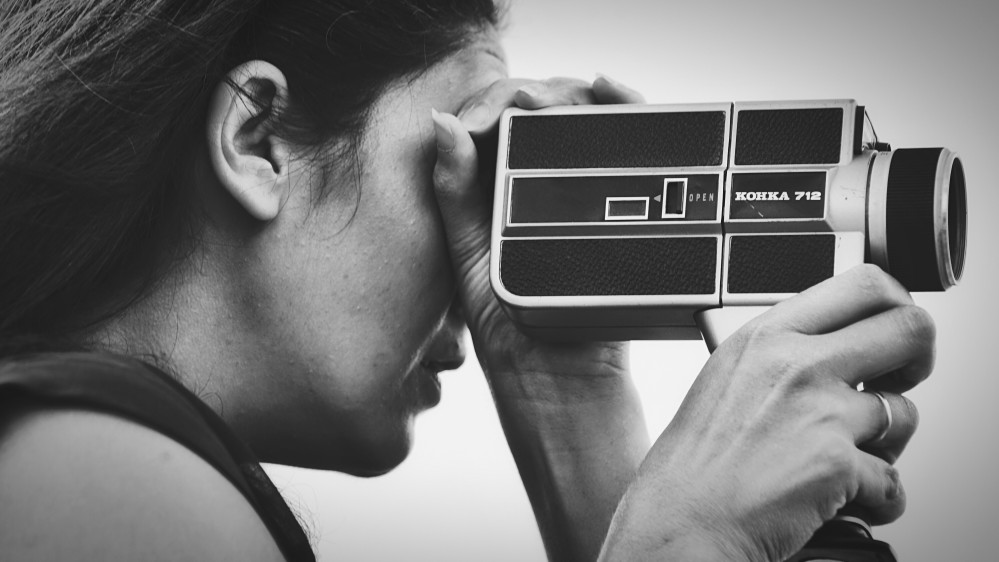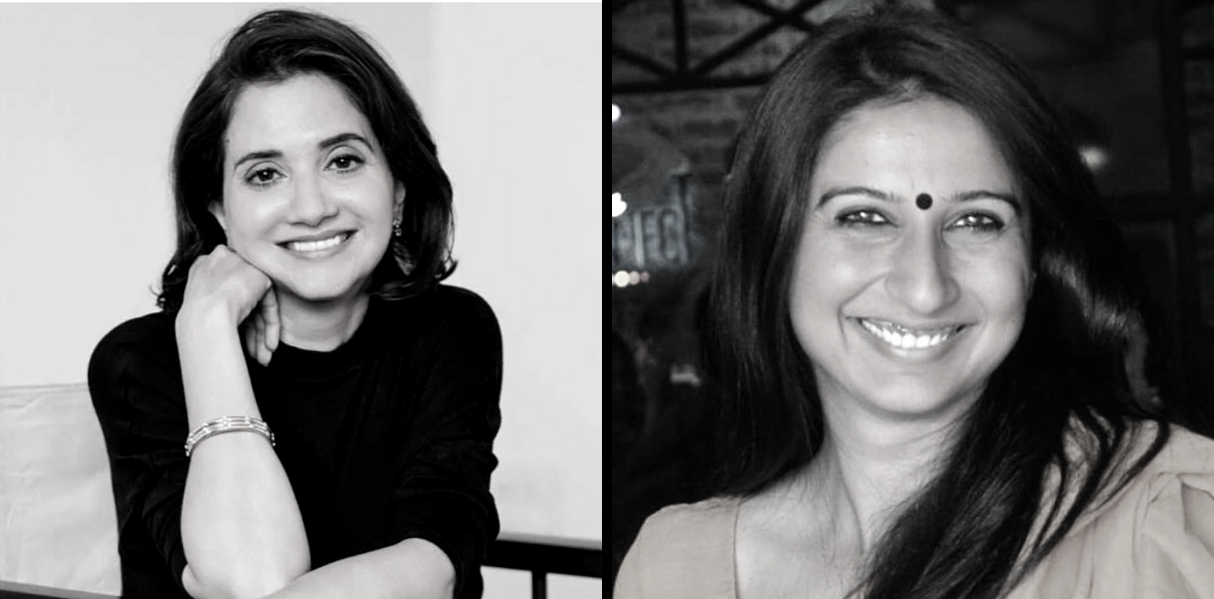Written By: Ungender Blog Team
Anupama Chopra is one of the best known names in Indian cinema. With more than 25 years in the cinema industry and as an author, journalist, film critic, director of the Mumbai Film Festival (MAMI), and also the founder of the digital platform Film Companion.
In conversation with Ungender Legal Advisory’s CEO and Founder, Pallavi Pareek, Anupama talks about what sets were like in the 90s and how things have changed, safety on the sets, women in the industry and more.
Has Cinema Progressed?
Pallavi: How much has cinema in India actually progressed, say from the 1960s-1970s?
Anupama: It hasn’t progressed. It’s a sort of cyclical thing. In the ’50s and the ’60 there were very, very powerful roles for women. The sort of superstardom of motherhood, at that time people saw this as a massive compliment. You had great actors like Nutan (like in Bandini). There were directors who were interested in finding out what the inner life of a woman is.
Then this was phased out in the 1970s, thanks to the superstardom of the angry young men or women such as Mr. Bachchan, a great actor, one of my favourites. But what essentially that did was sort of slowly edge out the leading lady, the comedian, because he could do everything and he was so successful.
So, through the ’70s and ’80s, cinema was unfair, in its potrayal of women. Chandni, in all her glory, was in the late ’80s. In the ’90s you had these women who were called the female Amitabh Bachchan… that was the ultimate compliment the film industry could pay to women actors, those who could pull in a crowd on their own. So it’s been peaks and troughs.
Then you had Dirty Picture in 2011. That kicked off a whole new spate of female lead films. So, it’s also hard at the same time to say, ‘Oh, we haven’t and we’re standing in the same place’. No, we’re not.

Technically, the film industry has moved massively in terms of female participation, it’s a brave new world. You can’t even imagine how male it was. So we have progress. But I think as an outsider, the only introduction to this workplace, to this industry, is the output that we see.
The industry is so much more than making movies, despite that film industries across the globe are not even at 50:50 in gender parity. In 1995 I was working for India Today magazine and went to do an interview on a set and found that literally the only women on that set were me, the central charecter, her mom and her hairdresser. There were four women in a crew of one hundred twenty plus people.
These were massive productions with very, very few women…you had women doing very specific jobs. Makeup was men. It was always a makeup Dada. The monopoly was men. Of course, the leading ladies were women. The dancers were women and that was it. You never saw an AD who was a woman.
I mean, the first time I remember noticing that… wow, there’s women on this set as assistant directors…which was probably ’98-99, you know, so that’s how recent the changes are.
Pallavi: Has cinema actually played its role as an influencer of society? Or is it getting influenced by society? Who is getting influenced by whom?
Anupama: When we speak of the film industry, it’s not like the film industry is made up of aliens who’ve arrived here from Mars… these are all people who are products of the society we live in.
So, to expect an amazingly emancipated industry where people, things are equal and men are making amazing progressive movies about women, or enabling those films to happen or greenlighting them and giving them massive budgets…. Is that the society we live in? No.
Look at what this country is. Look at the kind of violence we see against women on a daily basis. Why are we expecting the film industry to be somehow, this really intellectual progressive place? It’s not. We are all products of the society and we’re all learning. We’re all works in progress. Ahmed Khan has said that he did a song, sometime in the 90s which was really agressive. He said, “I would never do it now. But at that time in the ’90s, none of this felt unreal or abnormal”. It didn’t feel wrong. So, you know, everybody here is learning.
As we as a country evolve, we learn to treat our women differently, we learn to ask the right questions. That includes me. I mean, there are films which I’ve watched and thought, “wow, what a great love story”. I cried and I was moved and then I read somebody else saying that, “My God, this is stalking”, so you have your own blind spots and you have to constantly educate yourself and learn.
Of course, cinema is a massive influence, especially in this country. We worship the movies, we worship our film artistes and they have a huge social responsibility. But if they say, “We are here to entertain, we are here to do a great piece of acting. It’s not my job to send out great messages. That’s not what I signed up for”, that’s their prerogative too. I would love for artistes to have a sense of social responsibility, but I will not insist on it.
The Gender Lens in Indian Cinema
Pallavi: The world is divided on this, right?
Anupama: So is the film industry. I did a conversation with about eight actors at the end of 2019.
We had everybody from Ranveer to Deepika and Alia and Vidya. It was a divided room. Many people were like, “look, we are telling a story and you, as a thinking adult, take from it what you want”. Especially, you know, the whole conversation around Arjun Reddy and then later Kabir Singh’. I was like, “this is a very flawed character, I’m very conflicted about it, you must entertain us but also instruct us on how to be better people..”
Pallavi: The best movies do that. The best movies teach us how to be better people. A great film will open your mind. I’m always reading or looking at the world from gender lens.
Anupama: I’m not of a generation which looked at everything through a gender lens, but you know, I work with Sujatha, who works with me on Film Companion. She does look at films through a gender lens, and I think it’s a generational difference. You know, she’s far more aware than me, she’s far more offended. Maybe I made my peace with it.
Pallavi: Why are there not gay and queer artistes out there? Why is the queer community represented by actors enacting gay roles and not real gay or queer people acting?
Anupama: Maybe they don’t feel comfortable coming out. Maybe that’s the truth of it. It’s a tough business, to come out to the larger public is very, very tough and you have to be respectful of that decision.
First of all, it’s a country living in many, many different centuries. So you will have people who are extremely evolved and sophisticated and inclusive and accepting and you will have as many pockets that are like, “Oh my god kill this one, boycott this one, hate that one”.
If you’re an actor, I don’t know, maybe you just don’t feel confident enough. You might think that it might, it just might, you know, make you lose work. Anything is possible. Honestly, I wouldn’t want to put myself in those shoes, but one can only sort of respectfully, kind of say that’s their decision. We can hope that someday, we are at a place as an ecosystem, as a society and as a country, where people can speak their truth.
Pallavi: Officially cinema is not designated an ‘industry’. Though as a workplace, laws that apply to all other workplaces also apply here. How do you see it all panning out from the cinema industry perspective?
Anupama: I know for sure sexual harassment became a talking point, on that we all need to do better. The Producers Guild, which is a broader big organisation, has its own rules about how every production house, that’s a member, needs to have these laws in place and since then things have fallen into place. I’m not sure if everyone is aware of all the enabling acts.
Today the film industry is a far more organised place than in 1995. It was really the Wild Wild West then. There were a few big banner production houses with reputation. There were fly by night operators. There was also underworld money in the ’90s. However, much of it is still a gig economy.
Pallavi: How does the industry deal with the romance that happens on an outdoor shoot? Do they actively go in there and say this is not allowed?
Anupama: Of course, there needs to be a system.
This whole ecosystem is built on too many people chasing same very few things. Therefore, it is primed for exploitation. There are people in positions of power, who will be the gatekeepers to this fantasy life.
There are so many more women in the business now. Including in the really male-oriented, male dominated spaces like cinematography, or music composers. We now have female directors, female executives, makeup and hair… at every stage you will meet women. That changes the composition of the film set, that changes the texture of interaction… that changes the texture of awareness.

Even if it’s not great enlightened thinking, everyone’s scared now. So we’re good. Out of fear, you’re being mindful and you’re keeping the lines intact, and you’re making sure that you are respectful of the women on your set.
Pallavi: The truth is that we had our first mainstream Bollywood film about same-sex love story only last year. But even that didn’t go into the smallest areas of this country. There’s no point in preaching to the converted.
Anupama: In the film industry, every successive generation is smarter and is more willing to take risks. Just look at all the changes we’ve seen in the last two decades. I think the next two decades will bring even more changes.
We are talking of brands and how they actually create outputs, in terms of advertisements, print or media. The same is true of cinema, stories that are being written, characters are being written they all have different gender representations. Sometimes the way it is depicted is very entrenched. Even if we want to show a strong woman, there is still a very different side of her which still remains deeply rooted, cultured.
Then, if you want to show a queer person, the body language, everything is still very typical. This is probably not the real representation of what’s happening out there, or how the community is or even how different genders are.
Gender Reprentation in Cinema
Pallavi: Does it help to have somebody who is writing these roles, purely from the strategy side, to have members of the community (transgender community for example) actually as consultants?
Anupama: I don’t even know if they’re consulted. Characters will always be dependent on what a particular filmmaker wants to do and how deep do they want to go. It depends on what their aims are. A lot of them are just awful and that’s not for lack of time.
So, I think it would help to have direct inputs from whatever community they’re trying to represent. Like I said, as it goes along, it is going to evolve and it is getting better because I see the way in the last two or three years, writers have been empowered. That’s a very big thing. This whole empowering of writers is also going to bring about massive change.
Featuring actor Kalki on gender, this list of podcasts you must listen to in order to understand Diversity & Inclusion at the workplace more is essential reading!
Pallavi: Can we actually create the sense of safety that we talked about in teh film industry context? Safety from any form of harm, mental, physical, emotional financial? Has the sense of safety evolved?
Anupama: Going back to the journey of how it has been, we see a lot more actresses, but we had a lot of actresses earlier also.
I come from a place of privilege. It’s wrong for me to imagine that women feel a sense of safety. When I walk on to a set and I am married to a producer, I’m a journalist, I do feel a sense of safety, but then I have to recognise that that doesn’t mean that other women do. But I hope that because there are more women on the set now, women feel less isolated and feel less intimidated.
The industry is learning from how it used to do certain things. Maybe there were no processes earlier. Maybe there was no facility to send cars and mobility was always an issue. Issues of infrastructure were very different.
I’ve been on sets where I was hanging around all day to do an interview and you couldn’t use the washroom for seven hours because there was no loo that you could use. We’ve come a long way in the sense of safety. I think just having more women on a set gives you a sense of safety…
I always used to wonder why actresses used to bring their mothers along. Sets then would be just five women and 200 men. So, what better than to bring mom along. It’s a signal to everybody, “keep your distance!” Nobody does that anymore, you know, even the newbies, the youngest girls don’t.
I wonder if the pandemic will actually help to further the cause of women, though, because every female lead film is not gonna be measured by the box office. Maybe women will have a better playing field. Maybe we’ll get a little bit of a push.
Watch the video on FBLive here.
Video Highlights
05:39 – Progress in Cinema
10:30 – Expectations From Cinema
18:21 – Transgender Representation in Cinema
23:25 – Dealing With PoSH Situations in Cinema
33:44 – Women Have Come A Long Way in Cinema
Also #MustRead:
Can ‘Culture’ At A Company Prevent Sexual Harassment?
The Six Elements Of Effective PoSH Training
Ungender Insights is the product of our learning from advisory work at Ungender. Our team specializes in advising workplaces on workplace diversity and inclusion. Write to us at contact@ungender.in to understand how we can partner with your organization to build a more inclusive workplace.










